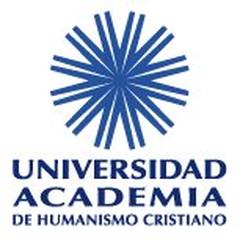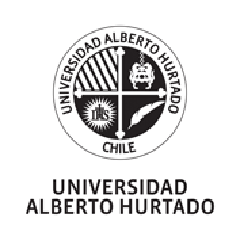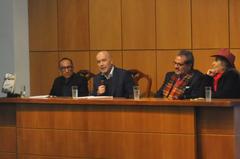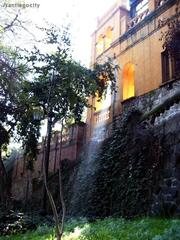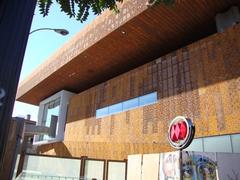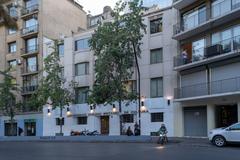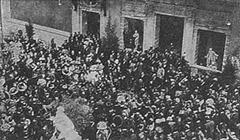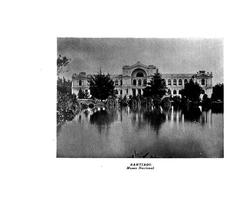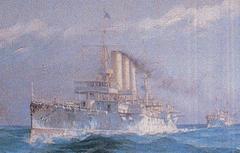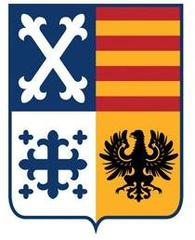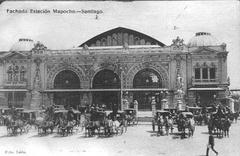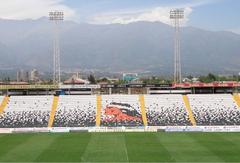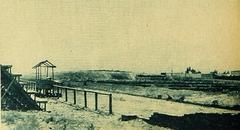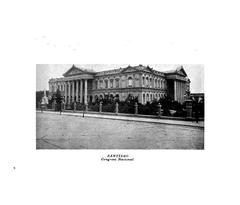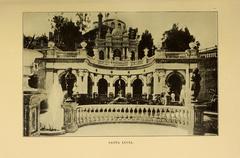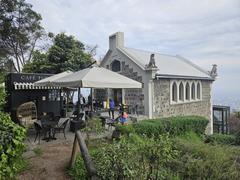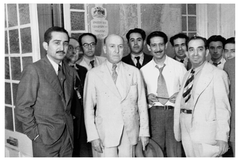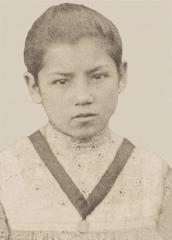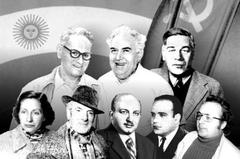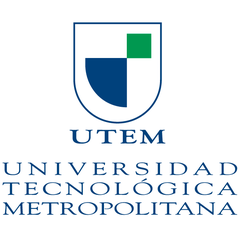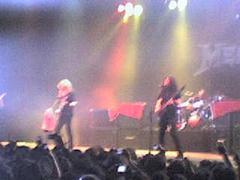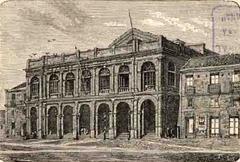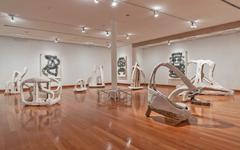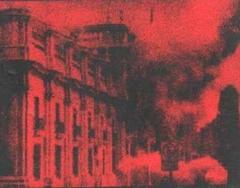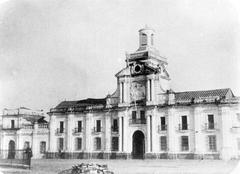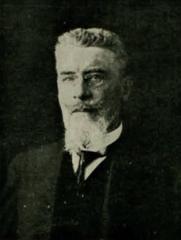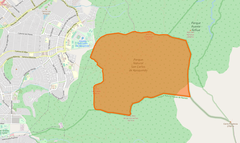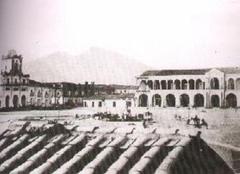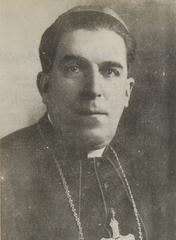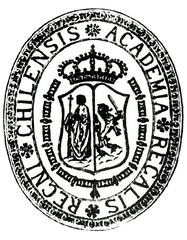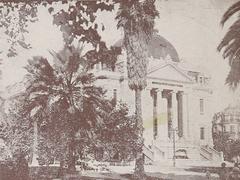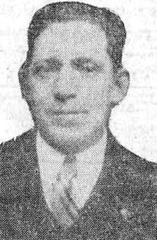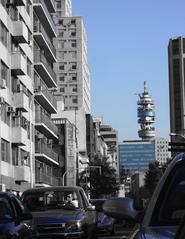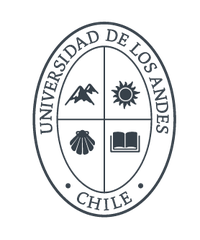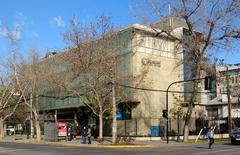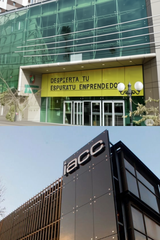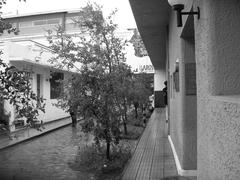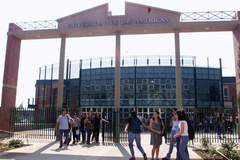
Londres 38 Santiago Chile Visiting Hours, Tickets, and Historical Sites Guide
Date: 04/07/2025
Introduction
Londres 38, located in Santiago’s historic Barrio París-Londres, stands as a solemn memorial and museum dedicated to the victims of Chile’s military dictatorship. Once a clandestine detention and torture center under General Augusto Pinochet’s regime, this National Monument is now a space for remembrance, education, and advocacy for human rights. Visitors are invited to engage with Chile’s recent history through guided tours, exhibitions, and participatory programs. This guide offers comprehensive information on visiting hours, ticketing, accessibility, nearby attractions, and practical advice to ensure a meaningful visit to one of Santiago’s most significant historic sites (Forging Memory; OH! Stgo).
Table of Contents
- Origins and Historical Context
- Role During the Pinochet Dictatorship
- Visiting Hours, Tickets, and Tours
- Accessibility and Facilities
- Educational and Cultural Significance
- Nearby Attractions and Travel Tips
- Visitor Experience and Etiquette
- Frequently Asked Questions (FAQ)
- Conclusion
- References
Origins and Historical Context
Constructed in 1925 with European-inspired architecture, Londres 38 originally served as a residential building for Santiago’s elite. In the early 1970s, it housed the Socialist Party headquarters. Following the September 11, 1973 military coup, the building was seized by the Dirección de Inteligencia Nacional (DINA) and transformed into a secret detention and torture center. Between 1973 and 1975, hundreds of political prisoners—primarily from leftist groups like the Movimiento de Izquierda Revolucionaria (MIR), the Socialist Party, and the Communist Party—were held and tortured here. The building’s address was even changed to “Londres 40” to obscure its identity (Forging Memory; OH! Stgo).
Role During the Pinochet Dictatorship
Londres 38 was a key site in a network of clandestine centers used by the DINA to suppress political dissent. Detainees faced interrogation, torture, and enforced disappearance. At least 98 victims are directly linked to this site, and the building became a symbol of state terror. Today, it stands in defiance of efforts to erase this history, preserving the memory of those who suffered within its walls (After Dictatorship).
Visiting Hours, Tickets, and Tours
Regular Visiting Hours (As of 2025)
- Tuesday to Friday: 11:00 AM – 1:30 PM and 3:00 PM – 5:30 PM
- First Saturday of Each Month: 10:30 AM – 2:00 PM
- Closed: Sundays and public holidays (including January 1, Good Friday, May 1, May 21, September 18–19, October 31, November 1, December 25)
Note: Due to ongoing restoration in 2025, on-site visits may be limited or suspended. Digital and off-site programming continues; check the official website for updates (Londres 38 Official; Registro Museos Chile).
Tickets & Admission
- Admission: Free for all visitors; donations are welcome to support the site’s work.
- Booking: Self-guided visits do not require tickets. Guided tours—highly recommended for deeper context—should be booked in advance, especially for groups or English-speaking visitors (Atlas Obscura).
Types of Visits
- Self-Guided: Explore at your own pace with exhibits in Spanish and some English.
- Guided Tours: “Visitas dialogadas” encourage reflection and are available in Spanish; English tours are available by request. Book via email.
- Educational Programs: Schools and organizations can arrange specialized workshops.
- Special Events: Londres 38 hosts talks, screenings, and commemorative events open to the public (Londres 38 Official).
Accessibility and Facilities
- Physical Accessibility: Some areas have limited wheelchair access due to the building’s historical structure. Contact staff in advance for accommodation (Registro Museos Chile).
- Languages: Most materials are in Spanish; English tours and resources are available upon request.
- Facilities: Londres 38 is a memorial site—there is no café or gift shop, but restrooms are available (accessibility may be limited). The surrounding neighborhood has many dining and shopping options.
Educational and Cultural Significance
Londres 38 is more than a historic site; it is a living space for remembrance and education. Declared a National Monument, it is central to Chile’s network of memory sites and plays a crucial role in commemorative events such as the September 11 coup anniversary and the Day of the Young Combatant. The site fosters critical reflection on state violence, democracy, and human rights through exhibitions, workshops, and audiovisual testimonies (OH! Stgo; Oxford Literary Festival).
Nearby Attractions and Travel Tips
Nearby Sites to Visit:
- Museo de la Memoria y los Derechos Humanos
- Villa Grimaldi
- Iglesia de San Francisco (0.06 miles)
- Biblioteca Nacional de Chile (0.19 miles)
- Museo Chileno de Arte Precolombino (0.45 miles)
- Plaza de Armas (0.48 miles)
Getting There:
- Metro: Universidad de Chile (Line 1); a short walk from the site.
- Bus: Numerous lines along Avenida Libertador Bernardo O’Higgins (Alameda).
- Walking: The central location makes it ideal for exploring nearby historic neighborhoods (Atlas Obscura; Lonely Planet).
Travel Tips:
- Book guided tours in advance, especially for English language needs.
- Weekday mornings are usually quieter.
- Wear comfortable shoes for cobblestone streets.
- Maintain a respectful demeanor; photography is allowed in most spaces, but always ask staff before photographing sensitive areas.
Visitor Experience and Etiquette
Expect a solemn and reflective atmosphere. Exhibits include preserved cells, documentary displays, and memorial installations honoring victims. Visits typically last between 45 minutes and 1.5 hours. While children are allowed, the content is best suited for adults and older teens.
Visitor Conduct:
- Keep noise to a minimum.
- Seek permission before photographing personal testimonies or sensitive exhibits.
- Treat the site and its history with respect.
Frequently Asked Questions (FAQ)
Do I need to book tickets?
No tickets are required for self-guided visits. Book guided tours in advance via [email protected].
Is Londres 38 accessible to visitors with disabilities?
Some areas have limited access; contact the site for assistance.
Are guided tours in English available?
Yes, on request and with advance booking.
Can I take photos inside?
Photography is generally allowed, but ask staff before photographing sensitive exhibits.
How do I reach Londres 38?
Use the Universidad de Chile metro station (Line 1) or nearby bus routes.
Are there facilities like restrooms or cafés?
Restrooms are available (access may be limited); no café on-site, but options are nearby.
Is the site open during restoration?
Check the official website for updates, as restoration may affect access.
Conclusion
Londres 38 embodies Chile’s struggle for truth, justice, and memory. As both a memorial and educational space, it offers visitors a powerful opportunity to reflect on the legacy of state violence and the ongoing defense of human rights. Despite periods of restoration, Londres 38 remains committed to public engagement through digital and off-site programming. Plan your visit, explore related sites, and honor the stories preserved within its walls.
Download the Audiala app for more travel guides, and follow our social media for the latest updates and events related to Santiago’s historic memorials.
References and Further Reading
- Londres 38 in Santiago: A Historical Site and Visitor’s Guide, 2024, Forging Memory (Forging Memory)
- Visiting Londres 38: Hours, Tickets, History & Santiago’s Historical Sites, 2024, OH! Stgo (OH! Stgo)
- Londres 38 Visiting Hours, Tickets & Guide: Explore Santiago’s Historic Human Rights Site, 2025, Londres 38 Official (Londres 38 Official)
- Practical Tips for Visitors, 2024, Petit Futé (Petit Futé)
- Londres 38, Santiago Turismo (Santiago Turismo)
- Londres 38, Atlas Obscura (Atlas Obscura)
- Londres 38, Registro Museos Chile (Registro Museos Chile)
- Londres 38, Lonely Planet (Lonely Planet)
- Londres 38: On Impunity, Pinochet in London, and a Nazi in Patagonia, Oxford Literary Festival (Oxford Literary Festival)
- Human Rights in Tourism (Human Rights in Tourism)

